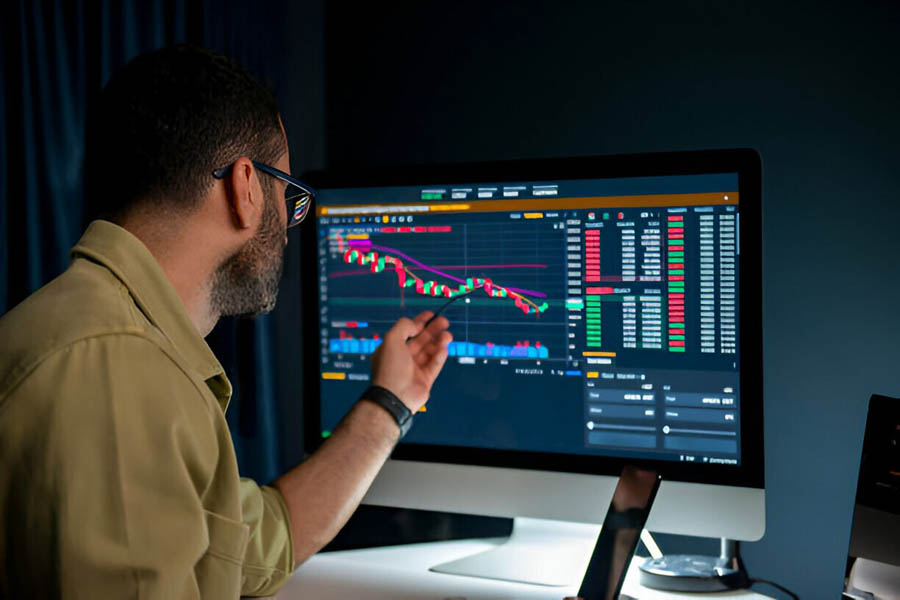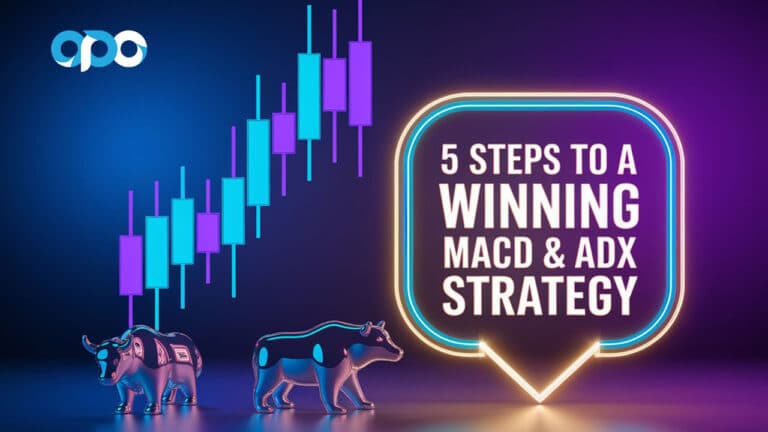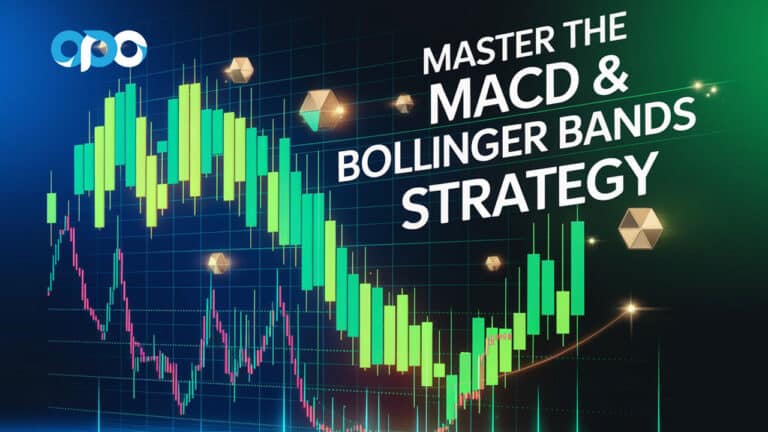In recent years, both Forex and cryptocurrency trading have become popular investment options for individuals looking to diversify their portfolios and maximize returns. While Forex trading has been around for decades, cryptocurrency trading is a relatively new phenomenon that has gained significant traction. Understanding the nuances of both these trading markets is crucial for anyone considering entering either domain. For those interested in Forex, choosing an online forex broker is an essential step. This article provides a comprehensive comparison of Forex vs Crypto trading, exploring their differences, similarities, and the unique challenges and opportunities each presents.

Understanding Forex Trading
What is Forex Trading?
Forex, or foreign exchange trading, involves buying and selling currencies with the aim of making a profit. The Forex market is the largest and most liquid financial market in the world, with daily trading volumes exceeding $6 trillion. It operates 24 hours a day, five days a week, across major financial centers globally.

Figure 1forex assets
Key Players in the Forex Market
The Forex market is driven by a diverse range of participants, including:
- Central Banks: Influence currency prices through monetary policies and interventions.
- Commercial Banks: Facilitate large volume currency trades for clients and themselves.
- Hedge Funds: Engage in speculative trading strategies to capitalize on market movements.
- Corporations: Conduct foreign currency transactions for business operations.
- Retail Traders: Individual investors trading smaller amounts through online platforms.
Trading Pairs and Major Currencies
Forex trading involves currency pairs, where one currency is exchanged for another. Major currency pairs include:
- EUR/USD (Euro/US Dollar)
- GBP/USD (British Pound/US Dollar)
- USD/JPY (US Dollar/Japanese Yen)
- AUD/USD (Australian Dollar/US Dollar)
These pairs are highly liquid and often subject to significant market analysis and speculation.
Market Analysis in Forex Trading
Forex traders employ two primary types of analysis:
- Fundamental Analysis: Examines economic indicators, interest rates, and geopolitical events to forecast currency movements.
- Technical Analysis: Utilizes charts and statistical methods to predict future price movements based on historical data.

Trading Strategies in Forex
Forex traders use various strategies to navigate the market:
- Scalping: Involves making numerous small trades to capture minute price changes.
- Day Trading: Positions are opened and closed within a single trading day to avoid overnight risks.
- Swing Trading: Trades are held for several days to take advantage of market swings.
- Position Trading: Long-term strategy where positions are held for weeks or months based on fundamental analysis.
Risks and Rewards in Forex Trading
Forex trading offers substantial opportunities but comes with inherent risks:
- Leverage: Magnifies profits and losses, requiring careful risk management.
- Market Volatility: While generally lower than cryptocurrencies, significant economic events can cause rapid price changes.
- Geopolitical Risks: Political instability, wars, and economic policies can affect currency values.
Read More: Forex vs Cryptocurrency trading
Understanding Cryptocurrency Trading
What is Cryptocurrency Trading?
Cryptocurrency trading involves buying, selling, and exchanging digital currencies on various online platforms. Unlike traditional fiat currencies, cryptocurrencies operate on decentralized networks based on blockchain technology. Bitcoin, launched in 2009, was the first cryptocurrency, and it remains the most widely traded and valuable.

Key Players in the Crypto Market
The cryptocurrency market includes:
- Miners: Validate transactions and secure the network, earning new coins in the process.
- Exchanges: Platforms where users can buy, sell, and trade cryptocurrencies.
- Developers: Work on creating and improving blockchain technologies and new cryptocurrencies.
- Retail Traders and Investors: Individuals trading cryptocurrencies for profit or long-term investment.
Popular Cryptocurrencies
While Bitcoin is the most well-known cryptocurrency, several others have gained prominence, including:
- Ethereum (ETH)
- Ripple (XRP)
- Litecoin (LTC)
- Bitcoin Cash (BCH)
Each cryptocurrency has unique features and serves different purposes within the broader blockchain ecosystem.
Market Analysis in Crypto Trading
Cryptocurrency traders also use various analysis methods:
- Fundamental Analysis: Involves evaluating the technology, team, use case, and market adoption of a cryptocurrency.
- Technical Analysis: Similar to Forex, involves chart analysis and indicators to predict price movements.
Trading Strategies in Cryptocurrency
Crypto traders employ a variety of strategies:
- Day Trading: Taking advantage of short-term market movements within a single day.
- Swing Trading: Holding positions for several days to capitalize on market swings.
- HODLing: Long-term strategy of buying and holding assets despite volatility, banking on long-term appreciation.
- Arbitrage: Exploiting price differences between different exchanges.
Risks and Rewards in Cryptocurrency Trading
Trading cryptocurrencies comes with unique risks and rewards:
- High Volatility: Offers opportunities for significant gains, but also substantial losses.
- Regulatory Risks: Changing regulations can impact market sentiment and prices.
- Security Risks: Exchange hacks and security breaches pose significant threats to traders’ assets.
- Market Sentiment: Driven heavily by news, social media, and public perception.
Key Differences Between Forex and Cryptocurrency Trading
Market Hours and Liquidity
- Forex: Operates 24/5 with high liquidity due to the involvement of major financial institutions and global trading volumes.
- Cryptocurrency: Operates 24/7, but liquidity can vary significantly between different cryptocurrencies and exchanges.
Regulation and Security
- Forex: Heavily regulated by financial authorities in different countries, providing a degree of security and stability.
- Cryptocurrency: Regulation varies widely by jurisdiction, and the market has faced issues with fraud, hacks, and regulatory uncertainty.
Volatility and Risk
- Forex: Generally less volatile than cryptocurrencies, with major currencies having relatively stable price movements.
- Cryptocurrency: Highly volatile, with significant price swings driven by market sentiment, news, and regulatory developments.
Accessibility and Trading Platforms
- Forex: Accessible through various online brokers with established trading platforms offering advanced tools and features.
- Cryptocurrency: Accessible through numerous exchanges, each with different features, security measures, and user interfaces.
Market Influencers
- Forex: Influenced by economic indicators, interest rates, and geopolitical events.
- Cryptocurrency: Influenced by technological developments, regulatory news, market sentiment, and macroeconomic factors.
Is Trading Crypto Easier Than Forex?
Entry Barriers
- Forex: Requires knowledge of financial markets, economic indicators, and trading strategies. Brokers often have minimum deposit requirements.
- Cryptocurrency: Easier for beginners to start, with many exchanges offering user-friendly interfaces and low entry barriers.
Learning Curve
- Forex: Extensive learning curve involving economic theories, global markets, and technical analysis.
- Cryptocurrency: While technical knowledge of blockchain can be beneficial, trading can start with a basic understanding of market trends and sentiment analysis.
Tools and Resources
- Forex: Access to a wide range of trading tools, research reports, and educational resources from brokers and financial institutions.
- Cryptocurrency: Growing number of educational resources, trading tools, and platforms offering insights and analysis.
Advantages and Disadvantages
Forex Trading
Advantages
- High liquidity and lower volatility.
- Regulated market with established oversight.
- Access to leverage and advanced trading tools.
Disadvantages
- Requires significant knowledge and experience.
- Limited market hours (24/5).
- Smaller profit margins compared to the potential gains in crypto.
Cryptocurrency Trading
Advantages
- Potential for high returns due to volatility.
- 24/7 market accessibility.
- Lower entry barriers and easier access for beginners.
Disadvantages
- High volatility and risk of significant losses.
- Regulatory uncertainty and security concerns.
- Market manipulation and lack of oversight.
Deep Dive: Economic Indicators in Forex
Understanding economic indicators is crucial for Forex trading. These indicators help predict future currency movements and provide insight into a country’s economic health. Key indicators include:
Gross Domestic Product (GDP)
GDP measures the total value of goods and services produced in a country. A rising GDP indicates economic growth, which often strengthens the currency.
Inflation Rates
Inflation reflects the rate at which prices for goods and services rise. Moderate inflation is generally positive, indicating economic growth, while hyperinflation can devalue a currency.
Unemployment Rates
High unemployment suggests economic distress, potentially weakening the currency. Conversely, low unemployment usually strengthens the currency as it indicates economic stability.
Interest Rates
Set by central banks, interest rates influence currency value. Higher rates attract foreign investors seeking better returns, boosting the currency’s value.
Trade Balances
The difference between a country’s exports and imports affects currency strength. A trade surplus (more exports than imports) typically strengthens a currency, while a trade deficit can weaken it.
Deep Dive: Technological Factors in Cryptocurrency
Cryptocurrency values are often influenced by technological advancements and innovations within the blockchain ecosystem. Key technological factors include:
Blockchain Upgrades
Major upgrades to blockchain networks, such as Ethereum’s transition from Proof of Work to Proof of Stake, can significantly impact a cryptocurrency’s value.
Security Enhancements
Improvements in security measures enhance trust in a cryptocurrency, potentially increasing its value. Conversely, security breaches can severely damage investor confidence.
Adoption Rates
Increased adoption of a cryptocurrency for transactions, smart contracts, or decentralized applications (dApps) can drive demand and value.
Partnerships and Integrations
Collaborations with major companies or integration into popular platforms can boost a cryptocurrency’s profile and utility, positively affecting its price.
Regulatory Developments
Changes in regulatory environments can have profound impacts on cryptocurrencies. Positive regulatory news often boosts prices, while restrictive regulations can cause declines.
Case Studies: Success Stories in Forex and Crypto Trading
Forex Trading: The Story of George Soros
George Soros is one of the most renowned Forex traders, famously known for “breaking the Bank of England.” In 1992, Soros bet against the British Pound, believing it was overvalued and would devalue. His strategy involved short-selling £10 billion, resulting in a profit of over $1 billion when the UK exited the European Exchange Rate Mechanism and the Pound plummeted.

Cryptocurrency Trading: The Rise of Bitcoin
Bitcoin’s dramatic rise in value from less than $1,000 in early 2017 to nearly $20,000 by the end of that year is one of the most significant success stories in cryptocurrency trading. Early adopters who held onto their Bitcoin through market fluctuations reaped substantial rewards. This period also saw increased mainstream attention and institutional investment, further driving Bitcoin’s value.
Advanced Strategies for Experienced Traders
Forex: Carry Trade Strategy
The carry trade strategy involves borrowing a currency with a low-interest rate and investing in a currency with a higher interest rate. The trader profits from the difference between the interest rates (the carry) and any capital appreciation. This strategy requires careful analysis of interest rate trends and market conditions.
Cryptocurrency: Staking and Yield Farming
Staking involves locking up cryptocurrency in a wallet to support network operations, earning rewards over time. Yield farming, on the other hand, involves lending or providing liquidity to decentralized finance (DeFi) platforms to earn interest and additional tokens. Both strategies offer ways to earn passive income, but they come with risks, including market volatility and smart contract vulnerabilities.
Read More: Forex Market vs Other Markets
Psychological Aspects of Trading
Emotional Control in Forex Trading
Successful Forex trading requires emotional discipline. Traders must avoid the pitfalls of greed and fear, sticking to their trading plans and not letting emotions dictate their actions. Techniques such as journaling trades and setting strict risk management rules can help maintain emotional control.
Managing FOMO in Cryptocurrency Trading
Fear of Missing Out (FOMO) is particularly prevalent in the highly volatile cryptocurrency market. Traders might make impulsive decisions based on hype and speculation. To manage FOMO, traders should focus on research, stick to their strategies, and avoid making decisions based solely on market buzz.
Tools and Resources for Traders
Forex Trading Platforms
Forex traders have access to a variety of platforms offering advanced tools and resources:
- MetaTrader 4 (MT4) and MetaTrader 5 (MT5): Popular for their comprehensive charting tools and automated trading features.
- TradingView: Offers powerful charting tools, social trading features, and a community of traders sharing ideas.
- cTrader: Known for its user-friendly interface and advanced trading capabilities.
Cryptocurrency Trading Platforms
Cryptocurrency traders can choose from numerous exchanges, each with unique features:
- Binance: Offers a wide range of cryptocurrencies, advanced trading features, and staking options.
- Coinbase: Known for its user-friendly interface, making it ideal for beginners.
- Kraken: Provides robust security features and a wide selection of cryptocurrencies.
Educational Resources
Both Forex and cryptocurrency traders can benefit from a wealth of educational resources:
- Books: Classics like “Trading for a Living” by Dr. Alexander Elder and “Mastering Bitcoin” by Andreas Antonopoulos.
- Online Courses: Platforms like Coursera, Udemy, and Khan Academy offer courses on trading and blockchain technology.
- Webinars and Seminars: Many brokers and exchanges provide live and recorded sessions covering various trading topics.
Comparing Forex and Crypto: A Risk Management Perspective
Risk Management in Forex
Effective risk management is crucial for Forex trading success:
- Stop-Loss Orders: Protect against significant losses by automatically closing positions at predetermined levels.
- Position Sizing: Adjusting the size of trades based on account size and risk tolerance.
- Diversification: Spreading investments across different currency pairs to mitigate risk.
Risk Management in Cryptocurrency
Given the high volatility of cryptocurrencies, risk management is even more critical:
- Stop-Loss and Take-Profit Orders: Automatically close trades at certain price points to protect profits and limit losses.
- Portfolio Diversification: Investing in a mix of established and emerging cryptocurrencies.
- Secure Storage: Using hardware wallets and other secure methods to protect assets from hacks and theft.
The Future of Forex and Cryptocurrency Trading
Innovations in Forex Trading
Technological advancements continue to shape Forex trading:
- Artificial Intelligence and Machine Learning: Enhancing trading algorithms and predictive models.
- Blockchain Technology: Potentially increasing transparency and efficiency in currency transactions.
- Social Trading Platforms: Allowing traders to follow and copy successful traders’ strategies.
Innovations in Cryptocurrency Trading
The cryptocurrency market is rapidly evolving, with innovations such as:
- Decentralized Finance (DeFi): Offering financial services without intermediaries, enabling new trading and investment opportunities.
- Non-Fungible Tokens (NFTs): Creating unique digital assets with ownership verified on the blockchain.
- Central Bank Digital Currencies (CBDCs): Governments exploring digital versions of fiat currencies, which could integrate with existing cryptocurrencies.
Technical Analysis Techniques: Forex vs Cryptocurrency
Forex Technical Analysis
Forex traders often rely on a range of technical analysis tools and techniques to make informed trading decisions:
Moving Averages
Moving averages smooth out price data to identify trends over a specified period. Common types include simple moving averages (SMA) and exponential moving averages (EMA).
Relative Strength Index (RSI)
The RSI is a momentum oscillator that measures the speed and change of price movements. It helps identify overbought or oversold conditions in the market.
Fibonacci Retracement
This tool uses horizontal lines to indicate areas of support or resistance at the key Fibonacci levels before the price continues in the original direction.
Cryptocurrency Technical Analysis
While many techniques used in Forex are applicable to cryptocurrency trading, there are specific tools favored by crypto traders:
Moving Average Convergence Divergence (MACD)
The MACD is a trend-following momentum indicator that shows the relationship between two moving averages of a cryptocurrency’s price.
Bollinger Bands
Bollinger Bands consist of a middle band (a simple moving average) and two outer bands (standard deviations). They are used to measure market volatility and identify overbought or oversold conditions.
On-Balance Volume (OBV)
OBV uses volume flow to predict changes in stock price. It adds volume on up days and subtracts volume on down days to show how volume is flowing into or out of a cryptocurrency.
Read More: Forex Market Vs Other Markets
Legal and Ethical Considerations in Forex vs Crypto Trading
Forex Trading Regulations
Forex trading is heavily regulated, with various authorities overseeing trading practices to protect investors and maintain market integrity:
- Commodity Futures Trading Commission (CFTC) and National Futures Association (NFA) in the US
- Financial Conduct Authority (FCA) in the UK
- Australian Securities and Investments Commission (ASIC)
Regulated brokers must adhere to strict standards, including transparency, capital requirements, and fair trading practices.
Cryptocurrency Trading Regulations
The regulatory landscape for cryptocurrencies is still evolving. Key regulatory concerns include:
- Anti-Money Laundering (AML) and Know Your Customer (KYC) Compliance: Exchanges and brokers must implement measures to prevent money laundering and verify the identities of their customers.
- Securities Regulation: Some cryptocurrencies are classified as securities, subjecting them to additional regulations.
- Tax Compliance: Traders must report gains and losses to tax authorities, with regulations varying by country.
Ethical Considerations
Both markets require ethical trading practices to ensure fair and transparent operations. Traders should avoid manipulative practices such as:
- Market Manipulation: Actions intended to deceive or distort market prices, such as pump and dump schemes.
- Insider Trading: Trading based on non-public, material information about a company or cryptocurrency.
Psychological Challenges and Strategies
Psychological Challenges in Forex Trading
Forex trading requires managing emotional responses to market movements. Common psychological challenges include:
- Fear and Greed: These emotions can lead to impulsive decisions and deviation from trading plans.
- Overtrading: Excessive trading in response to market fluctuations, often leading to significant losses.
- Loss Aversion: The tendency to hold onto losing positions for too long, hoping for a rebound.
Strategies to Overcome Psychological Challenges in Forex
- Develop a Trading Plan: Establish clear rules for entry, exit, and risk management.
Use Stop-Loss Orders: Protect against significant losses and prevent emotional decision making.
- Maintain a Trading Journal: Record all trades, including reasoning and outcomes, to learn from past experiences and improve decision-making.
- Practice Mindfulness and Stress Management: Techniques such as meditation and regular breaks can help maintain focus and emotional balance.
Psychological Challenges in Cryptocurrency Trading
Cryptocurrency trading presents unique psychological challenges due to its high volatility and speculative nature:
- FOMO (Fear of Missing Out): The fear of missing out on potential gains can lead to impulsive buying at market peaks.
- Panic Selling: Rapid market drops can trigger panic selling, leading to substantial losses.
- Confirmation Bias: Seeking out information that confirms existing beliefs while ignoring contradictory data.
Strategies to Overcome Psychological Challenges in Crypto
- Set Realistic Goals: Establish clear, achievable goals and avoid setting unrealistic expectations.
- Diversify Investments: Spread investments across different assets to mitigate risk.
- Stay Informed but Detached: Follow market news and trends, but avoid emotional attachment to specific investments.
- Use Automated Tools: Consider using trading bots to execute predefined strategies without emotional interference.
Real-World Applications of Forex and Cryptocurrency
Forex Trading Applications
Forex trading plays a critical role in various sectors:
- International Trade: Facilitates the exchange of currencies for global business transactions.
- Investment Diversification: Provides investors with opportunities to hedge against currency risk and diversify portfolios.
- Tourism and Travel: Enables travelers to exchange currencies and manage exchange rate fluctuations.
Cryptocurrency Trading Applications
Cryptocurrency trading has led to significant developments in the financial and technological sectors:
- Decentralized Finance (DeFi): Offers financial services such as lending, borrowing, and trading without intermediaries.
- Cross-Border Payments: Enables fast, low-cost international transactions without relying on traditional banking systems.
- Digital Identity and Security: Blockchain technology provides secure, immutable records for identity verification and data protection.
Comparing Risk and Reward: Forex vs Crypto
Assessing Risk in Forex Trading
Forex trading risks include:
- Leverage Risk: High leverage can amplify losses, leading to significant financial risk.
- Political and Economic Events: Unpredictable geopolitical events and economic changes can cause sudden market shifts.
- Broker Risk: The risk of broker default or fraudulent practices, although mitigated by regulation.
Assessing Reward in Forex Trading
Potential rewards in Forex trading include:
- Stable Returns: Lower volatility compared to cryptocurrencies can lead to more predictable returns.
- High Liquidity: Easy entry and exit from trades due to the high liquidity of major currency pairs.
- Regulated Environment: Protection through regulatory oversight and investor protection mechanisms.
Assessing Risk in Cryptocurrency Trading
Cryptocurrency trading risks include:
- Market Volatility: Extreme price swings can result in significant gains or losses within short periods.
- Regulatory Uncertainty: Changing regulations can impact market stability and investor confidence.
- Security Threats: Risks of hacks, scams, and theft due to the digital nature of cryptocurrencies.
Assessing Reward in Cryptocurrency Trading
Potential rewards in cryptocurrency trading include:
- High Returns: The high volatility offers opportunities for substantial profits.
- Innovation and Growth: Early adoption of emerging technologies and cryptocurrencies can yield significant long-term gains.
- 24/7 Market: Continuous trading opportunities, allowing traders to capitalize on global market movements.
Innovations and Future Trends
Future Trends in Forex Trading
The Forex market is expected to evolve with several emerging trends:
- Artificial Intelligence (AI): AI-driven trading algorithms and predictive models enhance trading efficiency and accuracy.
- Blockchain Integration: Increasing use of blockchain for transparency and security in currency transactions.
- Social Trading: Platforms enabling traders to follow and replicate the strategies of successful traders, promoting knowledge sharing and community engagement.
Future Trends in Cryptocurrency Trading
The cryptocurrency market is poised for rapid evolution, with key trends including:
- Decentralized Finance (DeFi): Growth of DeFi platforms offering innovative financial products and services.
- Non-Fungible Tokens (NFTs): Expansion of NFTs, creating new opportunities for digital asset ownership and trading.
- Central Bank Digital Currencies (CBDCs): Development of digital versions of fiat currencies by central banks, integrating with existing cryptocurrency ecosystems.
- Interoperability Solutions: Enhancing cross-chain communication and collaboration between different blockchain networks.
Comparing Regulations: Forex vs Crypto
Regulatory Landscape in Forex Trading
Forex trading is subject to stringent regulations to ensure market integrity and investor protection:
- Licensing Requirements: Brokers must obtain licenses from relevant authorities to operate legally.
- Financial Reporting: Regular reporting and audits to maintain transparency and accountability.
- Consumer Protection: Measures to protect traders from fraudulent practices and ensure fair trading conditions.
Regulatory Landscape in Cryptocurrency Trading
Cryptocurrency regulation varies widely, with ongoing developments aimed at addressing key challenges:
- Licensing and Compliance: Exchanges and brokers must comply with local regulations, including AML and KYC requirements.
- Taxation: Clear guidelines for reporting and taxing cryptocurrency transactions and gains.
- Consumer Protection: Efforts to safeguard investors from scams, fraud, and market manipulation.
Ethical Considerations in Trading
Ethical Practices in Forex Trading
Ethical considerations in Forex trading include:
- Transparency: Clear and honest communication with clients and stakeholders.
- Fair Trading: Avoiding manipulative practices and ensuring fair market conditions.
- Responsibility: Taking responsibility for trading decisions and adhering to regulatory standards.
Ethical Practices in Cryptocurrency Trading
Ethical considerations in cryptocurrency trading include:
- Transparency: Clear disclosure of risks, fees, and operational practices.
- Security: Implementing robust security measures to protect investor assets.
- Integrity: Avoiding involvement in fraudulent schemes and promoting fair market practices.
Conclusion:
Both Forex and cryptocurrency trading offer unique opportunities and challenges for investors. Understanding the fundamental differences between Forex vs Crypto, including market dynamics, risk factors, regulatory environments, and psychological aspects, is essential for making informed trading decisions. Whether you are a seasoned trader or a beginner, choosing the right market depends on your investment goals, risk tolerance, and knowledge base. With continuous advancements in technology and evolving regulations, both markets are poised for significant growth and innovation, providing ample opportunities for those willing to navigate their complexities.
Can I trade Forex and cryptocurrencies simultaneously?
Yes, many traders diversify their portfolios by engaging in both Forex and cryptocurrency trading. However, it’s essential to understand the unique characteristics and risks associated with each market.
Which trading platform is best for beginners in crypto trading?
For beginners, platforms like Coinbase, Binance, and Kraken offer user-friendly interfaces and a variety of educational resources to help new traders get started.
How does leverage work in Forex and crypto trading?
Leverage allows traders to control larger positions with a smaller amount of capital. In Forex, leverage ratios can be as high as 100:1 or more, while in cryptocurrency trading, leverage is typically lower, ranging from 2:1 to 20:1, depending on the exchange and regulations.
What are the tax implications of Forex and cryptocurrency trading?
Tax regulations vary by country. In general, profits from Forex trading are considered capital gains or ordinary income, while cryptocurrency gains may be subject to capital gains tax. It’s crucial to consult a tax professional for specific guidance.
Are there automated trading systems for Forex and crypto?
Yes, both markets offer automated trading systems, such as Forex robots and crypto trading bots. These systems use algorithms to execute trades based on predefined criteria, helping traders capitalize on market opportunities without constant monitoring.
What is the impact of global events on Forex vs Crypto?
Global events, such as geopolitical tensions, economic announcements, and natural disasters, can significantly impact both Forex and cryptocurrency markets. Forex is more directly influenced by political and economic events, while crypto is also heavily swayed by regulatory news and technological advancements.
How important is it to stay updated with news in Forex vs Crypto trading?
Staying updated with news is crucial in both markets. In Forex, economic indicators, central bank policies, and geopolitical events directly impact currency values. In crypto, technological developments, regulatory changes, and market sentiment play a significant role in price movements.







